Best Practices for Digital Marketing in Tourism
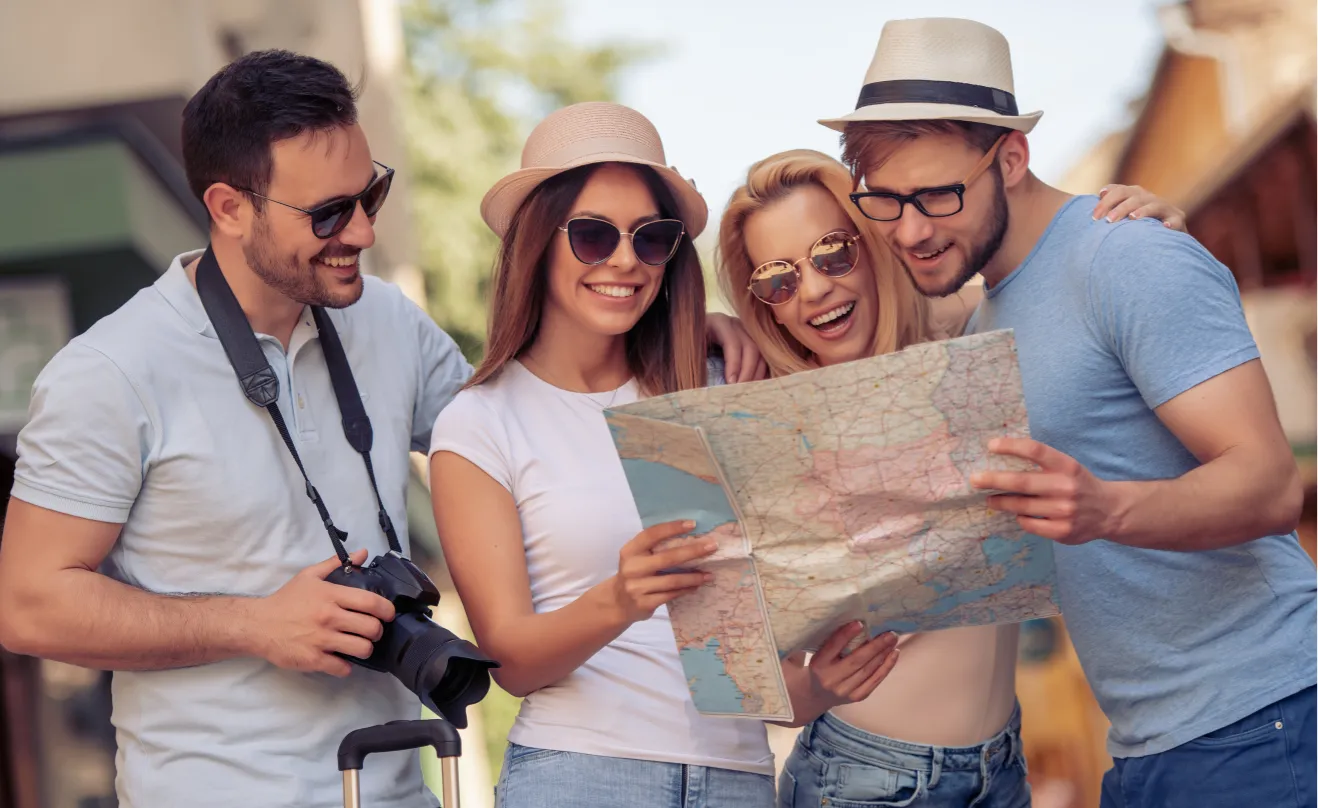
Best Practices for Digital Marketing in Tourism: A Guide to Boosting your Tour Business
Technology is always evolving, and your digital marketing strategy needs to keep up. With travellers browsing and booking on the go, standing out in a sea of options is more important than ever. Crafting the right marketing plan might feel overwhelming, but that’s where we come in. We’ll break down the essentials so you can stay competitive, attract the right customers, and keep your tourism business growing. When done right, digital marketing doesn’t just get you noticed, it helps you build real connections and bring in high quality leads.
Understanding the Tourism Digital Marketing Landscape

The tourism industry is as competitive as it gets, and with the rise of social media, mobile apps, and digital platforms, the rules of the game are constantly changing. So, how can your tourism business stand out and thrive in this dynamic environment?
First, it’s crucial to embrace digital marketing as an essential tool for growing your business. Digital marketing is all about reaching your audience where they spend most of their time online. Whether through social media, email marketing, or search engine optimization, being present on the right digital platforms can make a huge difference.
Social media marketing is a powerful tool, and it’s not just for generating buzz. It's also an effective way to create a strong community around your brand, provide valuable content, and engage directly with travellers. Platforms like Instagram, Facebook, and Twitter are where tourists are constantly sharing their travel experiences. It’s a great place to build relationships with potential customers and foster a sense of loyalty.
Moreover, digital marketing is all about providing a seamless and personalized experience. The more you understand your potential customers’ behaviors and preferences, the better you can tailor your messaging. A great digital marketing strategy will allow you to connect with your target audience, increase your visibility, and, ultimately, drive more bookings.
Developing Your Digital Marketing Strategy for Tourism Businesses
Now that we’ve established the importance of digital marketing, it’s time to dig into how you can create an effective strategy for your tourism business. It all begins with setting clear goals. Whether you’re looking to increase website traffic, boost brand awareness, or convert visitors into customers, your digital marketing strategy should align with your business objectives.
A well-developed digital marketing strategy for tourism businesses focuses on several key elements: content marketing, social media marketing, email marketing, and SEO. Each of these plays a crucial role in reaching your audience at the right time with the right message.
1. Content Marketing: Turning Storytelling into Bookings

Content marketing is more than just publishing blogs, it’s about creating compelling stories that capture the imagination of travelers and position your business as the expert in your destination. The best content speaks directly to potential customers, answering their questions, sparking their curiosity, and inspiring them to book.
For tour operators, destination-focused content is a great way to provide value while subtly promoting your services. Travelers are constantly searching for recommendations, itineraries, and tips, so creating guides that highlight must-visit spots, hidden gems, or the best ways to experience your tours can establish trust and authority. Beyond blog posts, video content has become essential in tourism marketing. Short, engaging videos that showcase breathtaking scenery, behind-the-scenes moments, or real customer experiences can go a long way in driving interest.
A strong content strategy isn’t just about what you publish but also how you distribute it. Repurposing content across multiple channels, your website, social media, and email ensures it reaches the right audience at the right time. An article on the best hiking trails in your destination, for example, can be transformed into an Instagram Reel, an email newsletter, and a travel inspiration post on Facebook. Keeping content fresh, relevant, and visually appealing helps create a deeper connection with potential customers, encouraging them to move from inspiration to action.
2. Email Marketing: Keep Travellers Engaged and Ready to Book

Email marketing remains one of the most effective ways to nurture leads and keep past customers engaged. With the right approach, it becomes more than just promotional emails, it becomes a way to create personalized conversations with travellers and inspire them to book their next experience.
A successful email strategy starts with understanding your audience. Not every subscriber is at the same stage in their journey, so sending the same message to everyone won’t be as effective. A traveller who recently booked a tour might appreciate a follow-up email with tips for their trip, while a first-time website visitor may need a little more encouragement, such as a special offer or an inspiring travel story. Segmentation helps ensure emails feel relevant rather than intrusive.
Automation can also play a huge role in keeping customers engaged. A well-timed email sequence like a welcome message for new subscribers, reminders for abandoned bookings, or post-tour follow-ups helps maintain a connection without requiring manual effort. The key is to keep messages value-driven, whether by sharing exclusive offers, seasonal promotions, or destination highlights.
A strong email marketing strategy isn’t just about pushing sales. It’s about creating a relationship with travelers, keeping them excited about their next adventure, and making it effortless for them to choose your business when they’re ready to book.
3. SEO: Make Sure Your Tours Get Found Online

In an industry where most travellers start their journey with a Google search, SEO is one of the most powerful tools for increasing visibility and driving direct bookings. A well-optimized website ensures that when someone searches for experiences in your area, your business is front and center.
For tour operators, SEO goes beyond adding keywords to a website. It’s about understanding traveler search behavior and creating content that aligns with their intent. People often search for specific experiences, things like "best whale watching tours in Vancouver" or "small group hiking tours in Banff." Having pages and blog content that address these specific searches increases the likelihood of appearing at the top of results.
Local SEO is just as important. Travelers often rely on Google Business Profile and Google Things to do when researching trips, making it essential to keep listings accurate, engaging, and filled with reviews. Search engines prioritize businesses that provide helpful information, so including high quality images, up-to-date availability, and detailed descriptions can make a significant difference.
Website performance also plays a role in search rankings. A slow-loading site can push potential customers away before they even explore your offerings. Optimizing images, ensuring a seamless mobile experience, and improving page speed not only help with SEO but also create a smoother booking process for visitors.
A strong SEO strategy isn’t just about ranking higher in search results—it’s about making sure the right travelers find your business at the right time and get all the information they need to confidently book their next experience.
4. Social Media and Influencer Marketing for Tourism
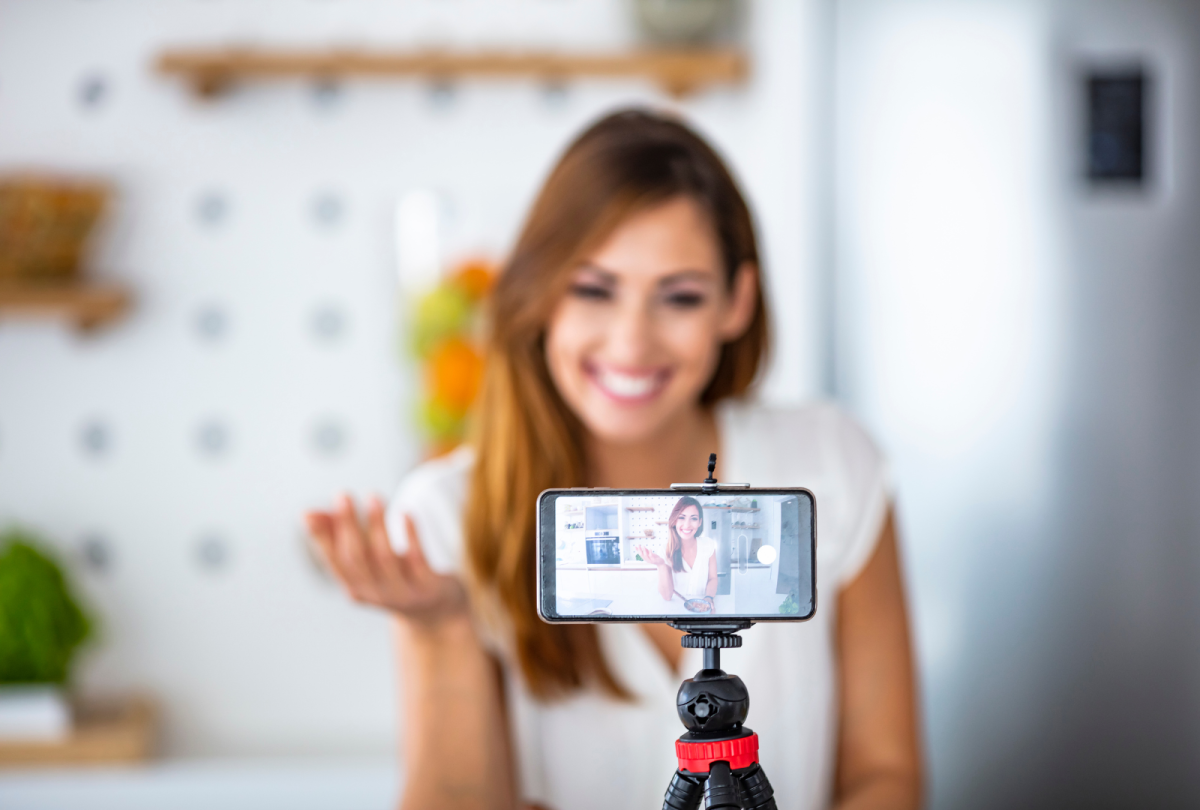
Social media plays a massive role in the tourism industry. Travellers often use it to discover new destinations, get recommendations, and connect with others. So how can tourism businesses use social media marketing effectively? Start by choosing the platforms that best align with your target audience. For instance, Instagram is a fantastic platform for sharing stunning visuals and travel stories, while Facebook can help you build a community around your brand. Use these platforms to engage with your audience, share behind-the-scenes content, highlight customer experiences, and promote new travel packages or deals.
Additionally, influencer marketing is another powerful tool in tourism marketing. Collaborating with travel influencers or bloggers who already have a strong following can help you gain credibility and expand your reach. Influencers can create authentic content that resonates with their audience, which can translate into more bookings for your business. Finally, remember to encourage user-generated content. Travelers love to share their experiences, and featuring their content on your social media channels not only creates a sense of community but also serves as social proof for future customers. Ask your customers to tag you in their posts or use a branded hashtag, and you might find some amazing content to share.
5. Leveraging Data and Analytics for Better Marketing Decisions

In the world of digital marketing, data is your best friend. With so much information available at your fingertips, understanding how to use it effectively can make a world of difference. For tourism businesses, leveraging data can help you understand customer behaviours, optimize your marketing efforts, and refine your strategies.
The tourism industry benefits greatly from data-driven decisions. For instance, using tools like Google Analytics and social media insights can give you a clear picture of your website’s performance, user demographics, and even which content is driving the most engagement. This kind of information is invaluable because it helps you fine-tune your strategy and make informed decisions.
By tracking metrics such as website traffic, bounce rates, and conversion rates, you can gain insights into what’s working and what isn’t. Is your content driving people to book a tour? Which pages on your website are attracting the most visitors? Are your email campaigns getting opened and clicked through? These insights will guide your next steps in marketing your tourism business.
Additionally, data allows you to adjust your targeting for paid campaigns. Whether it’s through Google Ads or social media ads, you can use demographic and behavioral data to better target potential customers. For example, if you find that a particular segment of travellers is engaging more with your content, you can focus your advertising efforts on reaching similar audiences.
6. Creating Stunning Visual Content That Converts
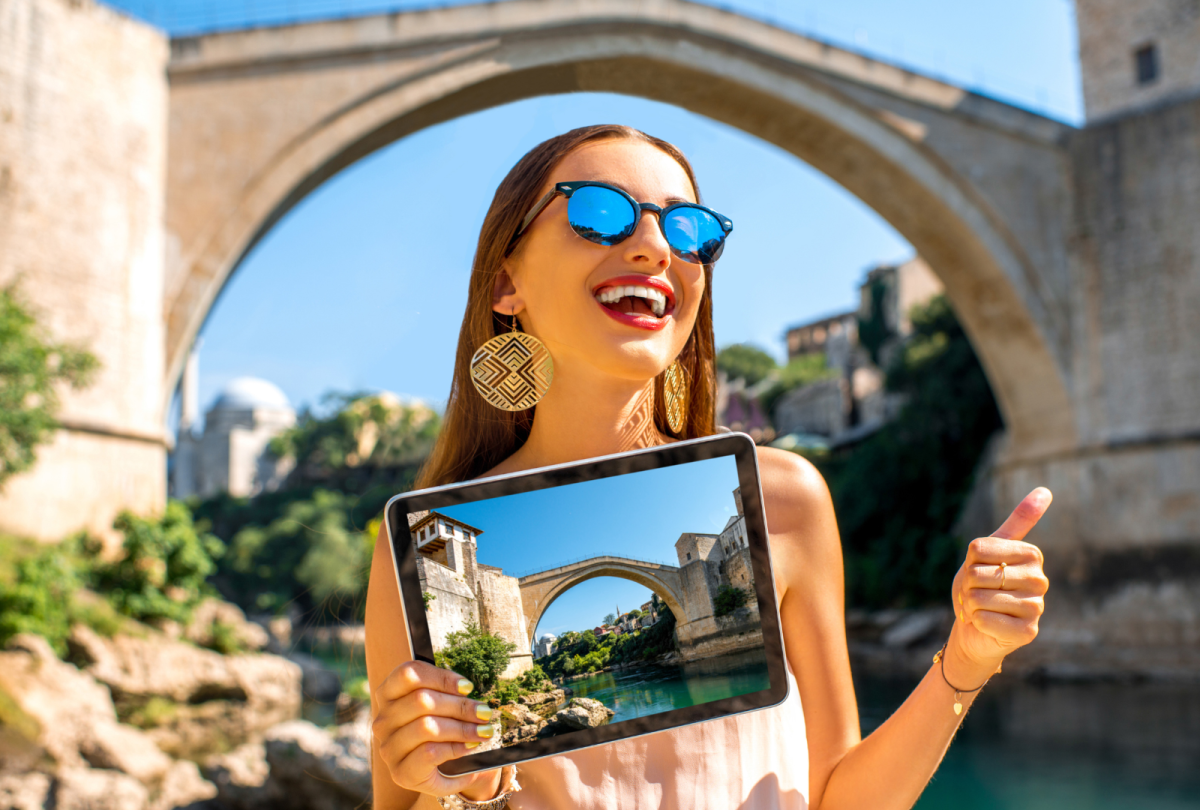
Tourism is all about experiences, and there’s no better way to showcase these experiences than through visual content. Today’s travelers are all about instant gratification, and the quicker you can capture their attention with eye catching visuals, the more likely they are to book with you.
Think about it, when you’re marketing a tourism business, images and videos are key to telling your story. Whether it’s a breathtaking video of a destination, a series of photos from a local tour, or even user-generated content from previous travelers, stunning visuals are your ticket to showcasing the experiences you offer. Video marketing is an especially powerful tool for tourism businesses. Video content allows you to share not just the beauty of a destination but also the emotional side of the experience. You can feature satisfied customers, capture the excitement of your tours, or even give a virtual tour of your destination. This kind of content creates an emotional connection with your audience, which is crucial in the decision-making process.
But it’s not just about posting beautiful images on social media. Make sure your visuals are optimized for all platforms. For example, Instagram loves high-quality photos, but video content, including Stories and Reels, is gaining traction. Make sure your videos are short, engaging, and high quality. Don’t forget to use captions, as many users watch videos with the sound off.
7. Maximizing Your Website’s Performance for Conversions
Your website is the hub of your digital marketing efforts, and it’s crucial that it works well for both you and your customers. Having a user-friendly website that’s easy to navigate and optimized for conversions can make a huge difference in how well your marketing campaigns perform.
Think about the user experience (UX) when designing your tourism website. Ensure it’s easy to find the information potential customers are looking for whether it’s details on tours, pricing, availability, or booking options. Your website should be mobile-friendly since more and more people are browsing and booking trips through their phones. If your website isn’t optimized for mobile, you risk losing potential bookings to competitors.
A seamless booking process is just as important as website usability. That’s why Zaui recently launched its Web Checkout, designed to streamline the booking flow and help operators increase their cart value. With a smooth, intuitive interface, Web Checkout makes it easier for customers to complete their bookings, reducing drop-offs and improving conversions. As online shoppers expect frictionless experiences, having a checkout built for efficiency is a game-changer for operators looking to maximize direct sales.
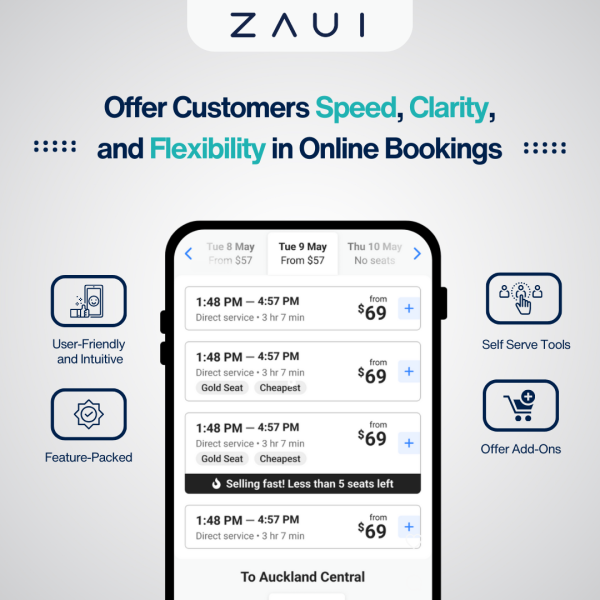
In addition to user experience, make sure your website has clear calls to action (CTAs). Whether you want visitors to book a tour, sign up for your newsletter, or learn more about your services, make sure these actions are easy to find and simple to complete. Using engaging CTAs like “Book Your Tour Now” or “Sign Up for Exclusive Offers” can drive conversions and increase bookings.
Lastly, speed is crucial. Travellers don’t have the patience for slow-loading websites. According to research, most users will leave a site if it takes longer than 3 seconds to load. Keep your website’s performance top-notch by optimizing images, reducing unnecessary plugins, and ensuring that your hosting is reliable.
Looking for an Edge? Try These Advanced Tips for Your Travel Business
A great social media presence is table stakes now but what it is that will give you an edge over your competitors, so here are some tips and tricks to give you that boost that you are looking for and these are specifically for tourism based on latest trends:

For tour operators, visibility on Google is about more than just SEO; it’s about leveraging powerful tools like Google Things to do. This product is specifically designed to help tour and activity operators stand out by providing an ideal platform to showcase their offerings. By integrating your business with Google’s search and map features, your activities gain exposure to millions of travellers looking for unique experiences. Google Things to do aggregates activities, tours, and other experiences from around the world, making it easier for potential customers to discover your offerings while researching their next destination.
In addition to Google’s well-established SEO algorithms, which play a significant role in determining your site's search ranking, Google Things to Do offers a unique opportunity to increase your business visibility directly in the search results. Google’s involvement in the travel market has grown considerably, with its search tools now offering more comprehensive booking options, including hotels, flights, and even weather forecasts. With this shift, Google is not just helping travelers find what they’re looking for, it’s positioning itself as a key player in driving bookings and helping businesses like yours stand out.
With Google Things to do, your business can be easily discovered by travelers browsing destinations, seeing your offerings alongside others in a competitive landscape. This increased exposure on a trusted platform can lead to higher conversion rates and more bookings. To learn more about how Google Things to do can benefit your business, check out our detailed guide or book a demo directly with our team to explore how it integrates with your existing system and boosts your visibility in the travel market
Photo Marketing tools

Have you heard about photo marketing platforms? If not, you’ve come to the right place. For tour operators, visual content is key to grabbing attention and boosting visibility. In an industry where showcasing experiences can make all the difference, there’s no better tool than user-generated content (UGC). UGC carries a level of authenticity and credibility that traditional marketing just can’t match, and it can work as a powerful, free marketing tool to promote word of mouth and drive engagement. After all, the only thing more persuasive than a written review is a photo review, something photo marketing platforms are designed to help you create and share effortlessly.
With photo marketing platforms, you can encourage guests to share their own photos, showcasing their experiences in real-time. This not only boosts your visibility but also helps build social proof, increasing trust among potential customers. Zaui customers have direct access to two leading photo marketing platforms, PicThrive and Fotaflo, right from their Zaui Marketplace, making it easier to incorporate this powerful marketing tool into their operations.
Fotaflo offers a simple, fast way to share high-quality photos with your guests, encouraging them to share their memories with friends, leave reviews, and contribute to your marketing efforts. It seamlessly integrates into your workflow, turning satisfied guests into your best marketers. This platform makes marketing almost effortless by generating organic exposure and fostering a deeper connection with customers.
On the other hand, PicThrive is a well-established, trusted platform within the adventure tourism space. It not only helps streamline the guest experience of purchasing tour photos and videos but also provides a way to boost your revenue. By offering customers easy access to purchase their photos and videos, PicThrive enhances their overall experience while adding another revenue stream for your business.
Both PicThrive and Fotaflo make it easier for tour operators to leverage the power of visual content, making marketing more effective, engaging, and profitable.
Affiliate Marketing

Affiliate marketing is a powerful strategy for tour and activity operators to expand their reach and increase bookings. By forming partnerships with affiliates such as established online travel agencies (OTAs) like Viator or GetYourGuide, or local businesses that specialize in your region you can tap into their pre-existing customer bases. These affiliates already have an engaged audience, making it much easier to promote your tours and activities. Instead of spending time and resources trying to find new customers, affiliate marketing allows you to leverage these partnerships to access a broader market. The best part is that you only pay affiliates a commission when bookings are made through their platforms, making it a cost-effective and performance-based approach to marketing.
Zaui offers a comprehensive suite of tools that simplify affiliate marketing and make partnerships more efficient. The platform’s channel manager and direct integrations with OTAs like Viator, GetYourGuide, and other key partners allow you to easily grant access to agents, wholesalers, and affiliates. This integrated system streamlines the booking process, making it easier to manage commissions, track performance, and ensure transparency. Zaui also tailors each partnership to fit specific needs, ensuring that you get the most out of every collaboration. Additionally, the platform’s real-time inventory management feature ensures that affiliates always have up-to-date availability, preventing overbooking and ensuring a smooth customer experience.
Working with OTAs such as Viator and GetYourGuide can significantly boost the visibility of your tours and activities on a global scale. Zaui integrates with all major OTAs, giving your offerings access to millions of potential customers. These integrations simplify the process by connecting your real-time availability directly to the platforms, so your tours are always visible to a wide, international audience. This connection helps increase bookings by tapping into markets that may be difficult to reach independently. Furthermore, Zaui’s seamless integration with platforms like Expedia Local Expert expands your reach even further, enabling you to market your tours and activities across over 60 global travel booking sites.
Local partnerships also play a vital role in affiliate marketing, and Zaui makes it easy to collaborate with nearby businesses such as hotels, restaurants, and shops. For instance, hotel concierges can refer guests to your tours, earning a commission for each successful booking made through their referral. Zaui’s Affiliate Login feature provides these local partners with a dedicated portal, making the booking process simple and efficient. By fostering strong relationships with local businesses, you can create a network of affiliates who are motivated to promote your tours in exchange for commission. This helps expand your reach without needing additional marketing resources.
Influencers and travel bloggers can also be valuable affiliates in your marketing strategy. Zaui’s platform supports this type of partnership by providing unique booking links or QR codes that influencers can share with their followers. Influencers and bloggers often have loyal followings who trust their recommendations, so when they endorse your tours, it can significantly increase your brand’s visibility and credibility. These affiliates are incentivized with commissions for each booking made through their links, ensuring they remain motivated to actively promote your services.
Incorporating affiliate marketing into your strategy can help you extend your reach, tap into new audiences, and boost your bookings—all while managing everything efficiently with Zaui’s platform.
Final Word
In conclusion, navigating the digital marketing landscape may seem challenging, but with the right strategies in place, your tourism business can thrive. From harnessing the power of data-driven insights and creating engaging visual content to optimizing your website and utilizing social media, there are countless ways to connect with your audience and stand out in the crowded marketplace. The key lies in understanding your customers, continuously evolving, and providing exceptional experiences that leave a lasting impression.
As the tourism industry continues to evolve, those who stay adaptable and proactive in their marketing approach will undoubtedly excel. By aligning your marketing strategy with your audience's needs and utilizing the right tools, you can drive traffic and build customer loyalty in a way that ensures long-term success.
At Zaui, we are committed to helping you achieve that success with a flexible, scalable platform designed to meet the unique needs of your business. Whether you're a tour operator or a destination brand, we provide the tools and support to help you navigate the complexities of digital marketing in the tourism industry.
Ready to take your marketing efforts to the next level? Explore how Zaui can help you elevate your business and stay ahead of the competition. Book a demo with our team today and see the difference for yourself!
Related Posts

What to Look for in a Travel Booking Software in 2026
Discover the essential features to consider when selecting a travel booking software in 2026 to streamline your travel booking process and enhance customer experience.
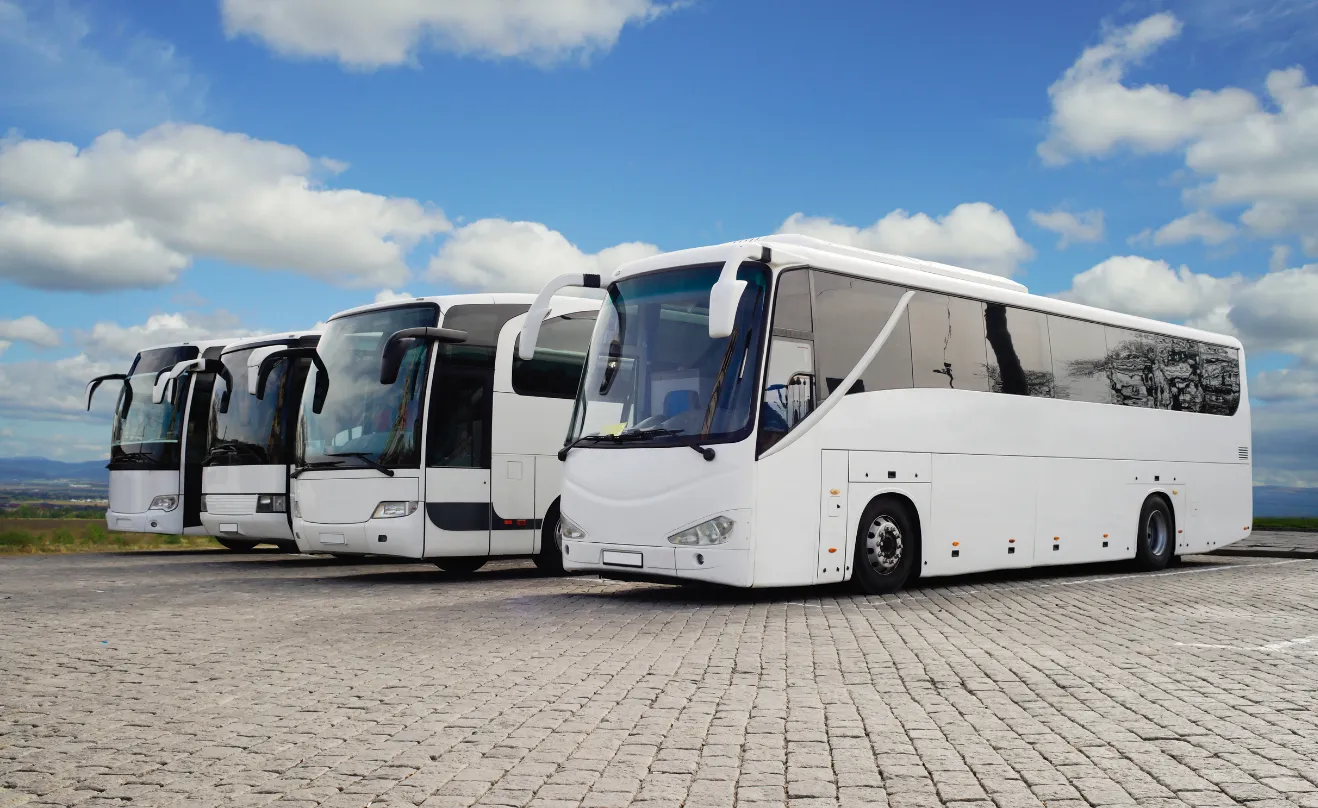
How Bus Travel and Ticketing Services Are Going Digital: A Look at the Modern Passenger Journey
Discover how Bus Travel and Ticketing Services are going digital for a smoother, smarter passenger journey. Explore the latest innovations today!


Frequently Asked Questions
No. Zaui’s pricing is fully pay-as-you-go. You aren’t locked into any long-term contract. In fact, leading platforms emphasize this flexibility. Similarly, Zaui lets you start and stop anytime. You can change or cancel your plan freely, so you only pay for what you use.
Absolutely not. Zaui’s pricing is 100% transparent. We disclose all fees up front with no surprise add-ons or “sneak-in” charges. In fact, Zaui’s plans include all core features “without additional fees”. Industry experts note that hidden fees undermine trust so we avoid them entirely. All costs are clearly outlined in our pricing, and there are no extra setup charges or undisclosed surcharges at checkout.
Zaui integrates with major payment gateways (e.g. Stripe) so you only pay standard credit-card processing rates (roughly 1.9%+$0.30/transaction) and we don’t mark them up. Only the published platform commission is added on bookings. You also have full control over who pays the commission, we let you decide whether to absorb booking fees or pass them on to customers. In short, you’ll only pay the transparent booking commission and normal gateway fees, nothing extra.
Your onboarding and support are included in the price. We provide white-glove setup help and ongoing 24/7 support at no additional cost. Our dedicated customer-success team will guide you through every step, ensuring a smooth launch. You won’t pay extra for training or service other than the onboarding fee; it's all built into your plan.
You can schedule a free demo with our team. Our Zaui ninjas will walk you through pe how Zaui can work for your business and highlight opportunities to grow with our advanced features all without any upfront payment. This way, you can feel confident it’s the right fit before making a commitment.
Of course. Zaui’s plans are fully flexible. You can upgrade or downgrade at any time to match your needs, without penalties. You can move to a higher tier or back down easily, and your billing adjusts automatically.
No. Zaui does not charge its commission on offline/manual bookings. “No fees on offline bookings” You only pay the commission when a booking is processed online through our system. Manual reservations (or bookings from partner channels we set up for you) incur no extra platform fee. (30% or less)
All of Zaui’s core features are included in your plan at no extra charge. We believe in value and transparency: Zaui provides over 15 advanced features (Google Things to do, reporting tools, marketing tools, reports, etc.) at no additional cost. Many competitors charge extra or require higher plans for the same features, but with Zaui you get the full suite of tools in one package. Any optional add-ons (if any) will always be clearly listed and optional there are no surprise paid upgrades for standard features.
Each Zaui plan is designed for clarity and fairness, following industry best practices. You can trust that our pricing is transparent and flexible, with the support you need built in.
Extra accounts- unlimited agents, resellers, user




